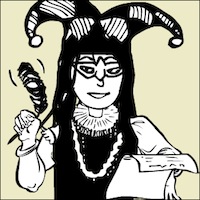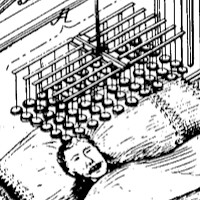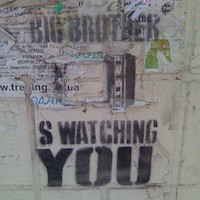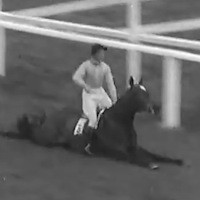16 Things We Love about Shakespeare

 1. The stories. Star-crossed lovers, long-lost twins, foul play, madness and revenge – thereby hang several Shakespeare tales. Exceedingly well read, he borrowed stories like A Midsummer Night’s Dream from Ovid and Julius Caesar from history books. And audiences lent him their ears.
1. The stories. Star-crossed lovers, long-lost twins, foul play, madness and revenge – thereby hang several Shakespeare tales. Exceedingly well read, he borrowed stories like A Midsummer Night’s Dream from Ovid and Julius Caesar from history books. And audiences lent him their ears.2. The characters. From hot-blooded Mercutio to cold-blooded Lady Macbeth, from zany Dogberry to Benvolio and Gratiano, good men and true – Shakespeare created characters of infinite variety. Murderers (Macbeth, Brutus, Claudius) negotiate misgivings, and heroines like Beatrice and Juliet are rarely well behaved.
3. The lines. “O, she doth teach the torches to burn bright” – no wonder Juliet fell for Romeo! Shakespeare wrote lines of such transcendence that I’ve been misquoting them throughout this article. In the 16th century, the Renaissance brought classical Greek and Roman literature to England, inspiring young Will to become a poet. During his own lifetime, his best-selling work was 1593’s Venus and Adonis, a 1200-line poem which was his first publication.
4. Blank verse. Still, poetry didn’t pay the rent, so aspiring bards made their living in the playhouses of London’s seamy side. They perfected blank verse, which is written in iambic pentameter. Consider Sonnet 18: “Shall I compare thee to a summer’s day?” This still-new poetic form gave English drama much-needed gravitas. As good luck would have it, blank verse also helps us to memorize Shakespeare’s lines. Spoken trippingly on the tongue, each line becomes more than just words, words, words.
5. Household words. Without the words Shakespeare added, the Queen’s English would be lackluster. We wouldn’t gossip or hobnob, nor besmirch anyone’s reputation. There’d be no blanket on our marriage-bed in the bedroom downstairs, no anchovies on our pizza, or skim milk, or love letters or puppy dogs. Disgraceful!
6. Whole phrases. What idiom didn’t Shakespeare invent, for goodness’ sake? We play fast and loose with his words all the livelong day, so ’tis high time we give him his due. That’s the short and long of it.
7. Ideas for titles. Novelists regularly make up titles from Shakespeare’s lines: Brave New World, Cold Comfort Farm, Infinite Jest, The Fault in Our Stars. So do screenplay writers – North by Northwest and Star Trek VI: The Undiscovered Country are both from Hamlet, and The Lion King is what happens when Shakespeare meets Disney.
8. Ideas for movies. Teachers regularly use movies to convince students not to give the Bard short shrift. West Side Story, She’s the Man, 10 Things I Hate About You and O are often on heavy rotation in English classrooms.
9. Ideas for travels. Illyria is ancient and Arden is fictional, but Shakespeare set most of his plays in real cities. Athens and Venice are identified in two titles, and Hamlet’s Elsinore is Kronborg Castle in Helsingør, Denmark. Outside of Europe, there are plays set in Egypt, Lebanon and Turkey.
10. Ideas from history. Referring to the Broadway hit Hamilton, President Obama praised “this kind of creativity in teaching history to our kids.” Shakespeare would probably agree. Sure, Henry V and Julius Caesar are lacking in catchy raps, but the history plays taught us about Henrys and Richards long before Game of Thrones made the Wars of the Roses cool.
 11. How he made acting cool. Our man started out as an actor, even though the profession was almost as obscene as prostitution. Fortunately, both Elizabeth I and James I were patrons of the theater, so acting slowly rose from disrepute. Today, many movie stars have headlined fast-sold-out adaptations, like Ian McKellen in the Royal Shakespeare Company’s King Lear, which I watched in 2007 in Stratford-upon-Avon, the Bard’s birthplace.
11. How he made acting cool. Our man started out as an actor, even though the profession was almost as obscene as prostitution. Fortunately, both Elizabeth I and James I were patrons of the theater, so acting slowly rose from disrepute. Today, many movie stars have headlined fast-sold-out adaptations, like Ian McKellen in the Royal Shakespeare Company’s King Lear, which I watched in 2007 in Stratford-upon-Avon, the Bard’s birthplace.12. All the world as a stage. And us, the men and women in it, as merely players. Drama’s duty is to hold a mirror up to nature and ask us to reflect on the real-life tragedies and comedies we get enmeshed in, to better understand our own and others’ humanity. How is life a brief candle? Are we fortune’s fools? Why does the course of true love never run smooth? These are the questions.
13. Shakespeare in Love. Even the author himself has been depicted as a character, in the 1999 Academy Award- and BAFTA-winning movie starring Joseph Fiennes and Gwyneth Paltrow. It was adapted for the stage and premiered in London five years later. I caught this one too before it closed the following year.
14. The family man. It was a historically inaccurate depiction, though! Documents show that Shakespeare took care of his family back in Stratford as he spent two decades working in London. After retiring a wealthy man in 1611, he left generous bequests to his married daughters and, famously, “the second-best bed” to his wife Anne. (This is probably because the best bed was inside the house bequeathed to Susannah, the elder daughter.)
15. The mystery man. Although he could afford to, Shakespeare apparently never commissioned his own portrait. So, of all the images we often see of him, only one is definitely of him. It’s the engraving in the First Folio, published in 1623 by fellow actors. It’s not the handsomest, but it’s the likeness that to his own self is true.
16. The auspicious birthday. We don’t really know when he was born, but church records do exist of his baptism (April 26, 1564) and his burial (April 25, 1616) in Stratford. From these, his birthday and the day he died were calculated to be April 23, which happens to be the feast day of St. George, England’s patron saint. This gives rhyme and reason for the chosen date.
That’s why there is much ado about the day in 2016. On The Complete Walk, an event sponsored by the Globe Theatre, blank-verse buffs can stroll along the Thames and stop at 37 pop-up screens to watch film clips of each of Shakespeare’s plays. Too much of a good thing? Not at all. Not for the man who gave us such stuff as dreams are made on.
(Both images are courtesy of RSC. For a list of some of the phrases I used that were coined by Shakespeare, see The Phrase Finder. I also used 29 individual words featured in the 1998 book Coined by Shakespeare. Can you guess which ones they are?)
You Should Also Read:
Shakespeare's Summer Sonnet
Shakespeare In Love
Day Trip from London - Stratford on Avon

Related Articles
Editor's Picks Articles
Top Ten Articles
Previous Features
Site Map
Content copyright © 2023 by Lane Graciano. All rights reserved.
This content was written by Lane Graciano. If you wish to use this content in any manner, you need written permission. Contact Lane Graciano for details.







